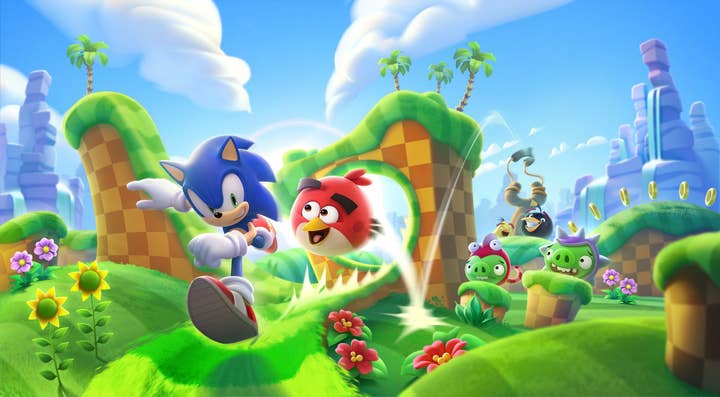Rovio reflects on its inaugural year following its €706 million acquisition by Sega, emphasizing the company's operational independence post-acquisition
In the past year, Sega's €706 million acquisition of Rovio has seen the Finnish company merge into Sega's operations, aiding the Japanese company’s growth in mobile gaming. This partnership will see the launch of Sonic Rumble this winter.
During an interview at Gamescom, Rovio's strategy vice president, Timo Rahkonen, elaborated on the integration efforts with Sega and the collaborative opportunities ahead. Rahkonen recalled the lengthy acquisition process, which gave Rovio insights into Sega's operations and business scale, aiding in evaluating their compatibility.

Throughout the year, Rovio explored the cultural differences between their Finnish operations and Sega's Japanese ownership, leveraging Sega's experience across various global locations. Rahkonen highlighted Rovio’s straightforward nature and transparency, attributes Sega values greatly.
Rovio retains a degree of autonomy within Sega, managing its own strategy while collaborating with various international teams. Rahkonen expressed that direct links with Sega's upper management have expedited decision-making and boosted collaboration.
Rovio has enhanced Sega's development processes through its Beacon platform, which streamlines game development and enhances user engagement. This technology is integrated into Sonic Rumble, with Rovio handling marketing and audience engagement, especially targeting Western markets.
"It's good to know that Sega isn't limiting us – everything is about the business opportunity"
The collaboration extends to other games such as Project Sekai Hatsune Miku, where Rovio aids in expanding into Western markets. Currently, Sonic is a significant focus due to its established popularity despite limited mobile presence.
Rahkonen envisions Rovio exploring additional Sega IPs like Persona and Yakuza in the future. However, Rovio's present capacity limits immediate expansion into these franchises. He stressed the importance of making calculated choices given resource constraints.
"If you want to create something new – it takes time. You need to build the foundation. That's what Rovio has been using the first year to identify"
While Sonic remains a priority, Sega supports Rovio's ambition to diversify. Rovio plans to leverage this partnership to expand its own franchises, notably Angry Birds, into new formats such as PC and console games.
Upcoming projects include several new mobile games under development, focusing on Rovio's expertise in casual gaming. Sonic Rumble’s release this winter coincides with Sonic the Hedgehog 3 and Sonic X Shadow Generations, reflecting Rovio's ambition to create transmedia success.
Rovio plans to achieve this with future projects such as The Angry Birds Movie 3, aiming for a comprehensive experience that enhances brand longevity through extensive gaming and storytelling avenues.
As the partnership with Sega matures, Rahkonen remains optimistic about the long-term potential, acknowledging the need for strategic groundwork to realize future creative endeavors.
